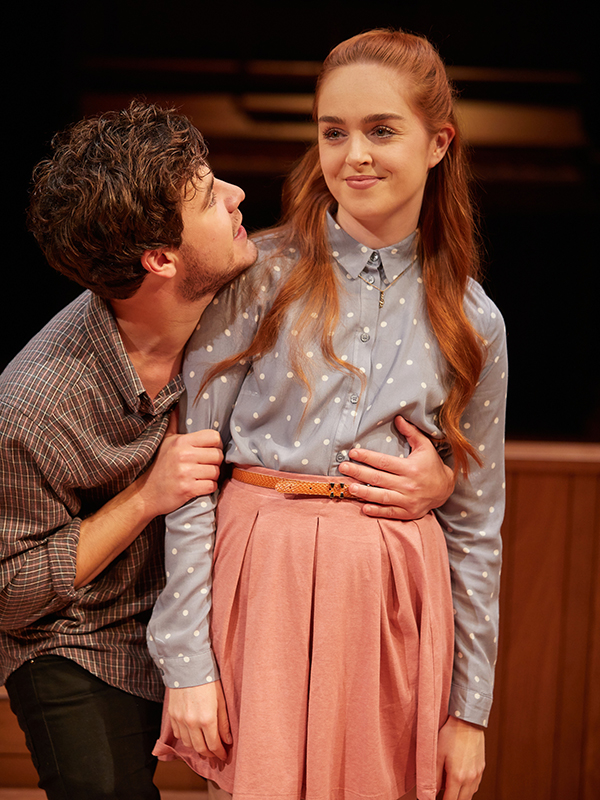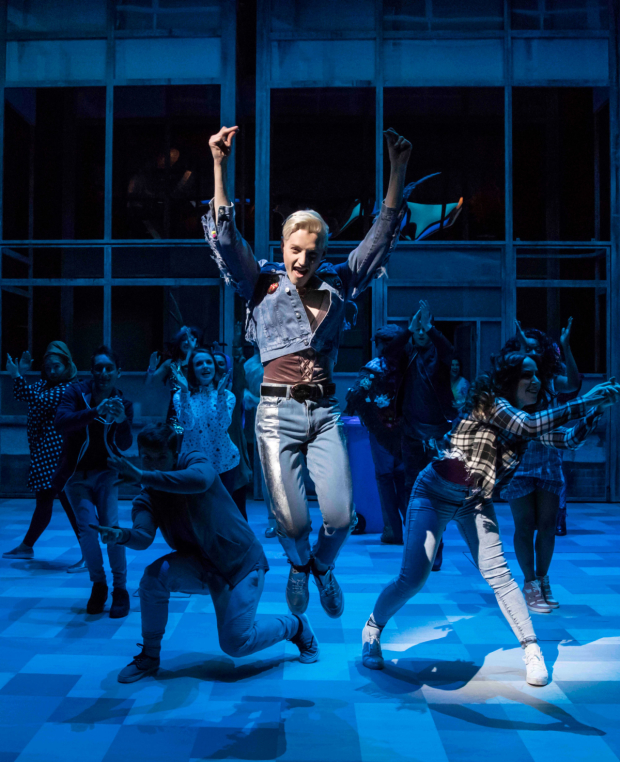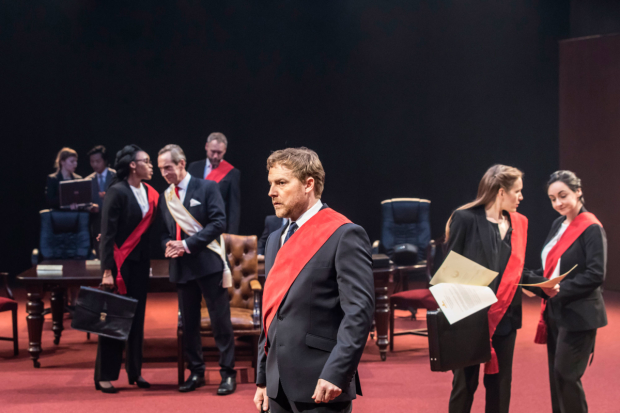Review: Desire under the Elms (Crucible Theatre, Sheffield)
In many ways the magnificent, but daunting, expanse of the Crucible stage dominates this production. At the start, a brown muddy dusty space is scattered with simple furniture and farm implements; at the back, rows of corn wave. A young man sprawls grief-stricken on a grave mid-stage while a fiddler plays a melancholy tune. Then the light changes, the clouds move overhead, an area is swept clean, a table is set for a meal and two men walk wearily through the corn with buckets full of stones.
Desire Under the Elms can be a claustrophobic play; clearly it isn't at the Crucible. Instead Sam Yates’ production of Eugene O’Neill‘s rustic tragedy, with inspired contributions from Chiara Stephenson (design) and Jon Clark (lighting), goes for the epic, the poetic and the atmospheric. It pulls it off splendidly, even if space sometimes weakens the intimacy of confrontations in what is essentially a three-hander, despite a cast-list of ten.
Ephraim, a 75 year-old New England farmer, is twice widowed. Peter and Simeon, sons of the first marriage, tired of years working for their father trying to make something of the stony New England soil, decide to head for California and the Gold Rush. Eben, their half-brother, is a more complex character, grieving for his mother and determined to inherit the farm which he says was hers. When Ephraim brings home a much younger bride, Abbie, three people claim the farm as theirs: Ephraim, Eben and Abbie, who resists Ephraim’s "my house" and "my farm" from the start. Even a developing affair with Eben seems at first directed by acquisitiveness rather than love. The second half is inevitably tragic, but the form of the tragedy surprises.
Theo Ogundipe and Sule Rimi are exuberantly convincing as the two older brothers, though when they head west, with a final jeer and gloat to their father, it’s all down to three characters. There are a number of party guests, but the most significant other contribution comes from Emma Darlow’s fiddle, whether inducing a mood or launching a hoe-down.
As Abbie, Aoife Duffin brings out the early ambiguity of character most effectively and is powerful and moving in the final tragedy, even if some of her passionate confrontations tend to operate on one note. Michael Shea’s Eben is all the stronger for being understated at times: the shifts in his conflicted character always convince. Likewise Matthew Kelly, the rural Bible-bashing patriarch to the life, but troubled and uncertain beneath the constant claims to be the only man there.
Despite fine performances all down the line, it’s the overall concept that is most memorable, the sudden visual images, the different areas of action cross-cutting cinematically, the lighting and the music unfailingly atmospheric.
Desire under the Elms runs at the Sheffield Crucible until 14 October.













